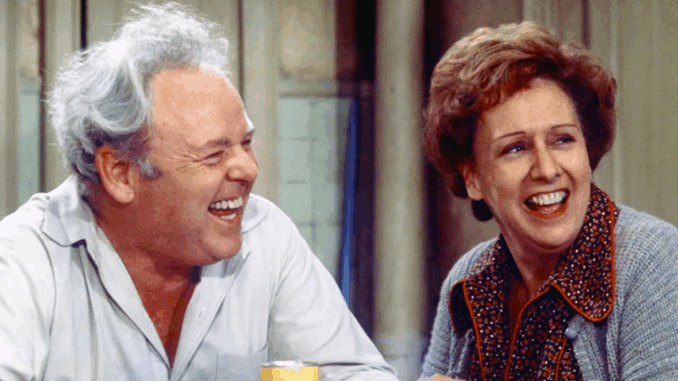
It’s been more than five decades since All in the Family first hit the airwaves on January 12, 1971, but the show’s impact has hardly faded. In fact, many of the social issues Archie, Edith, Gloria, and Mike argued about at the kitchen table still resonate today. Racism, sexism, class struggles, political polarization — topics once considered too controversial for television — are now nightly headline news.
So why does All in the Family still feel so relevant in 2025? Let’s take a look.
A Mirror to America
At its core, All in the Family was a mirror. Norman Lear, the show’s creator, wanted viewers to recognize themselves in the Bunkers. Whether they agreed with Archie’s bluster or cringed at his bigotry, they saw real people on screen — people with flaws, fears, and deeply held (sometimes outdated) beliefs.
Today, the country is still wrestling with many of the same issues the Bunkers debated 50 years ago. Immigration, income inequality, police violence, LGBTQ+ rights — all of these were touched on in one way or another in All in the Family. Archie’s outdated views are still held by people in 2025, and the pushback he got from Mike and Gloria reflects the generational and cultural clashes we continue to witness.
The Genius of the Format
Before All in the Family, sitcoms were safe. They didn’t touch politics. Families were idealized. Problems were solved in 22 minutes — no mess, no debate.
Then came Archie Bunker. Suddenly, primetime TV was filled with slurs, shouting, and uncomfortable silences. The audience laughed — but nervously. It wasn’t just entertainment; it was a provocation.
And yet, the format never felt like a lecture. Lear’s writing — and the brilliant performances from Carroll O’Connor, Jean Stapleton, Sally Struthers, and Rob Reiner — kept it grounded. You weren’t being preached at. You were watching a family stumble through the culture wars in real time.
Who’s the Archie Today?
Here’s the truth: there are still Archies. They don’t all wear suspenders and yell at the TV, but their views are alive and well. Maybe they’re online. Maybe they’re in Congress. Maybe they’re someone’s uncle or neighbor or boss.
The genius of All in the Family was that Archie wasn’t written as a villain. He was frustrating, but funny. He was ignorant, but familiar. He wasn’t meant to be hated — he was meant to be understood, even as we disagreed with him. That complexity is rare in today’s media landscape, where characters are often reduced to heroes or villains, red or blue.
The Lear Legacy

Norman Lear, who passed away in 2023 at age 101, left behind a treasure trove of socially conscious sitcoms, but All in the Family was the flagship. It spun off Maude, The Jeffersons, and Good Times — each tackling different corners of American life.
But All in the Family remains the gold standard because it never stopped challenging the audience. Even in reruns, it forces us to ask hard questions about who we are, who we were, and who we want to be.
Reruns with a Pulse
It’s not just nostalgia that brings viewers back to All in the Family. Younger audiences, discovering the show on streaming platforms or in YouTube clips, are often shocked by how current it feels. The language is dated, yes. The fashion is hilarious. But the tensions? The arguments? The stubbornness? Timeless.
And yet, there’s warmth underneath it all. The show isn’t nihilistic. There’s hope — that people can change, that families can survive differences, and that love might just be stronger than politics.
A Show That Still Sparks Conversation
In classrooms, media studies programs, and online debates, All in the Family is still dissected. It’s used to teach everything from cultural criticism to screenwriting to the history of race relations in America.
You can’t say that about many shows from the early ’70s.
The Final Word
Maybe the biggest reason All in the Family still matters is this: it made people talk. Around the dinner table. At work. In the streets. And it still does.
In an era when we often live in echo chambers, All in the Family reminds us that listening — really listening — matters. Even if we don’t agree. Especially if we don’t agree.
Because that’s how change begins. One uncomfortable conversation at a time. Preferably over a chipped kitchen table in Queens.